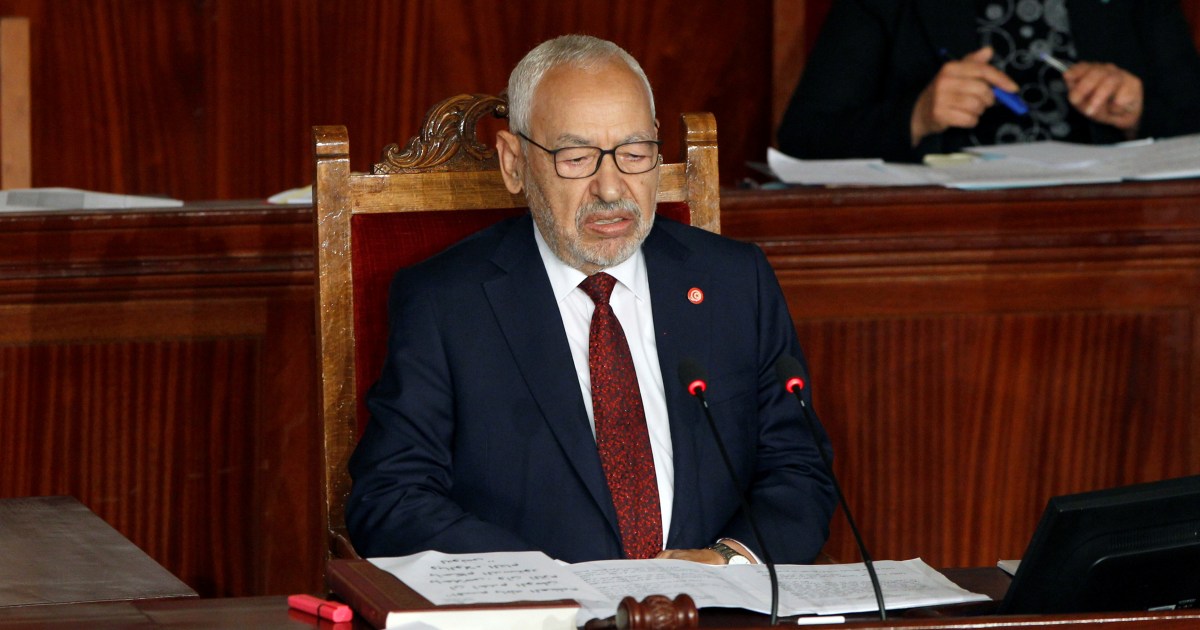Tunisian Parliament Speaker Rashid Ghannouchi confirmed that the House of Representatives decided to hold a public session next Thursday to discuss withdrawing confidence from him, while President Qais Saeid decided to release the foreign minister from his duties.
In a media statement, after a meeting of the office at the parliament’s headquarters, Ghannouchi said that he did not come on the back of a tank until he imposed himself on the will of the deputies, and that the session would be to renew confidence and restore it instead of withdrawing it.
The parliament office decided to hold a public session next Thursday to vote to withdraw confidence from Ghannouchi, based on a list submitted by 4 parliamentary blocs.
Ghannouchi added, "The formal objections contained in the list exceeded many, and it was possible to drop them in form at the office meeting, and we have the majority for that."
He added, "We accepted the challenge out of respect for the will of 73 deputies, who submitted the list (out of a total of 217), and this is not a small number, and respect for Tunisian democracy." He added, "We are optimistic about the future of Tunisia as long as the people are the master and he who is elected. Parliament is the supreme authority in the country based on democracy and a pluralistic system."
According to the Tunisian constitution and the internal system of parliament, passing the list of no confidence from the speaker of parliament requires the availability of an absolute majority of votes (109 out of a total of 217 deputies).
And last week, 4 parliamentary blocs announced - at a press conference - formally the deposit of a list to withdraw confidence from Ghannouchi at the seizure office in Parliament, after fulfilling the required number of signatures, which is 73 signatures.
The advanced blocs justified the no-confidence list, saying that this step came as a result of the Speaker taking decisions individually without consulting the Parliament Office, and issuing statements regarding foreign relations to Tunisia that contradict the orientation of Tunisian diplomacy, especially in the Libyan crisis, according to their opinion.
Ghannouchi had stressed more than once that the Libyan National Accord government was "the only legitimate government in Libya," while President Qais Saeed said that the legitimacy of the Al-Wefaq government headed by Fayez al-Sarraj was "temporary" and "based on international legitimacy."
In this context, which mainly presupposes the incompatibility between the presidency and the parliament in the Libyan file, today the head of the caretaker government, Elias Al-Fakhakh, decided - after consulting President Qais Saeid - to relieve Noureddine El-Ray from the post of Minister of Foreign Affairs.
Al-Fakhfakh commissioned the Secretary of State for Foreign Affairs, Salma Al-Niefer, as Acting Minister of Foreign Affairs, according to a statement issued by the Prime Minister.

